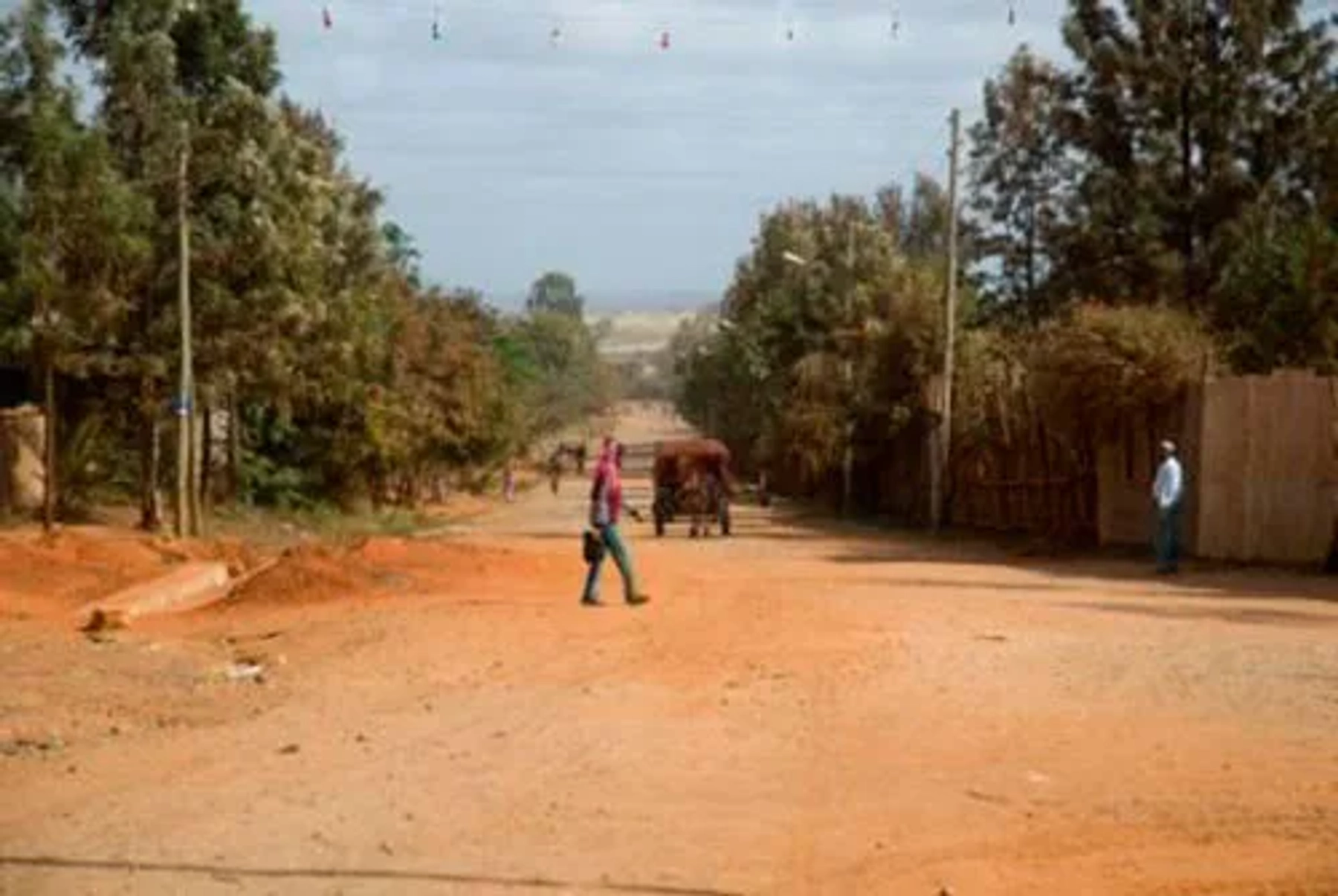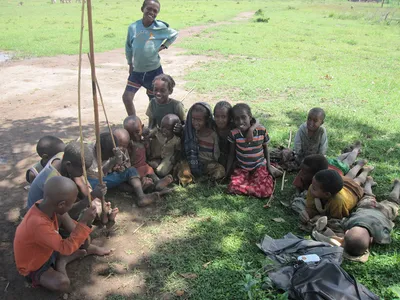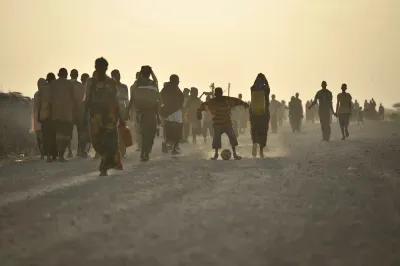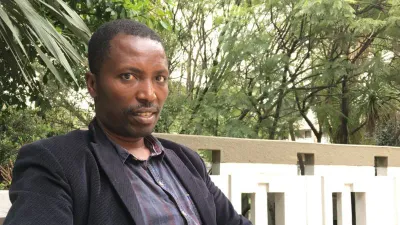How to resolve the Guji-Borana dispute over the new zone

Negele Borana. Photo: Eva-Lotta Jansson / Oxfam America.
On May 24, 2023, the Oromia regional government established its 21st zone, the East Borana Zone. The Borana community worldwide hailed the regional government’s decision, applauding it as the right course of action. On the other hand, the Guji Oromo people condemned the decision, viewing it as a betrayal. The ensuing turmoil encompassed protests, propaganda, lobbying, property destruction, road closures, human rights violations, and a surge of political mistrust between the Borana and Guji communities.
Historical Background
In 2003, the Oromia regional government divided the Borana Zone into two distinct zones: the Guji Zone and the Borana Zone. The Borana Zone’s headquarters shifted from Nagelle Borana to Yabelo, while the Guji Zone’s headquarters remained in Nagelle Borana.
The Borana community of Liban has long raised concerns about the loss of their pastoralist land to Somali clans of Degoodi and Merahan. The Borana territory, bordering the Somali region, has shrunk from approximately 180 kilometers to a mere 50 kilometers.
Under the leadership of East Guji, the Borana community felt marginalized, including lack of access to roads, schools, healthcare, job opportunities, and other essential development initiatives.
According to locals, Borana youths were targeted by administrators. Arbitrary detention, torture, extra-judicial killings of Borana youths in East Guji was rampant. Most Borana youths were accused of being a member of OLA and easily targeted.
Borana youths were sidelined in employment opportunities in all sectors, denied business licenses and lands. Due to such levels of discrimination most Borana university graduates moved to the Borana zone as an alternative for livelihoods.
The Borana leadership of Liban presented complaints before zone administrators on many occasions. According to community leadership, the zone administrators refused to pay attention to their demands for long. In 2018 a delegation of Borana university graduates presented a petition before Mr. Lemma Mergasa, the then President of the Oromia region in Adama.
A 24-page document seen by the author contains mainly the names of community members who lost their lives defending community lands, the land lost to mostly Somali clans and why the community wanted a new administration to defend their position. Community elders also made the same appeal before Mr. Shemilis Abdisa when he visited Yabelo in the year 2021 for cultural events. In the event aired live on Oromia Broadcasting Network (OBN) a Borana elder named Qaphare Godana made an emotional appeal to Mr. Abdisa: “give me a new zone to protect my land or take me to Dirre where my other clans reside.” The president’s response was: “I will not create a new zone for the sake of pleasing employees.”
A new zone is born
The announcement of the new Zone ignited a wave of excitement within the Borana community worldwide. They fervently believed that their lost land and town had finally been reclaimed. Social media platforms erupted in jubilant celebrations, reflecting the community’s profound sense of relief and hope. The Borana community felt that their long-standing grievances had finally been addressed, and they wholeheartedly embraced the government’s promise of development, peace, and tranquility for their region.
The Guji community, on the other hand, perceived the decision as a coup d’état. Protests erupted in most Guji districts. The police responded to the protesters with utmost brutality. Three people were killed by security officers in Bore town, and hundreds were illegally detained in various police stations across the two Guji zones.
Guji activists, both within Ethiopia and in the diaspora, denounced the new zone as an illegal entity, demanding its revocation. They alleged that the community was not consulted at the grassroots level prior to the decision. They further claimed that the transfer of the East Guji zone headquarters from Nagelle Borana to Adola Woyu was illegal and that their leaders were coerced into accepting the decision without due process.
The community, who had wholeheartedly supported Abiy Ahmed’s ruling party, was taken aback by the decision. They perceived the relocation of the East Guji headquarters from Nagelle Borana to Adola Wayu and the establishment of a new Borana Zone as a demotion of their political dominance over the Borana. Consequently, the community’s political sphere and leadership have been retracted to the local village level.
Guji Response
The Guji Oromo activists both in diaspora and in Ethiopia advocated for establishment of a parallel livestock market to counter the government’s decision. The advocacy led to the establishment of Goro Nagesso livestock market. This decision led to arbitrary detention of local youths and Goro Dola district administrators.
Community activists and high school students across various districts of the Guji Zone held numerous protests, condemning the government’s decision to create a new zone. Their slogan proclaimed, “Shemilis is an enemy of Guji. The Guji Zone headquarters must be moved back to Nagelle. Guji Oromos has questions.”
Advocating for road closures as a means of opposing the government’s decisions, activists initiated the closure of the Hawassa-Nagele Borana road at Haraqallo and Wadera town, effectively paralyzing public transportation.
Violent youths looted, burned down, and destroyed public and private properties, particularly vehicles operating between Hawassa town and Nagele Borana, on multiple occasions.
Guji leaders and activists, while simultaneously organizing ground protests in Haraqallo, Wadera, Shakiso, and other centers, made several visits to high-level offices in Addis Ababa to lobby the government to reconsider its decision. Guji Oromos have mastered the media narrative, especially from the diaspora, to organize protests, panel discussions exposing human rights violations, and disseminate sensitive information to communities to mobilize and defend their position.
Borana Counter Response
Borana activists and community leaders turned to social media to counter Guji Oromo allegations regarding Nagele Borana history, allegations of bad governance, and allegations of human rights violations under the previous East Guji zone leadership. Borana leaders also appealed to regional and federal authorities to maintain the status quo and thanked them for answering long-standing community questions.
What is the Solution?
The disagreement between Borana and Guji should be discussed at the grassroots level. Community meetings involving youths, women, and elders should be organized between the Borana and Guji at the village and district levels to foster understanding and cohesion.
Both Borana and Guji political elites should be involved in calming the current political climate. Political engagement should be undertaken both locally and internationally.
Human rights violations run rampant in both Guji and Borana zones. Currently, hundreds of people are detained in detention centers across the zones. Releasing all political prisoners, regardless of their political affiliations, will promote political harmony.
Young people are highly politically active in both Borana and Guji zones. Social media disinformation and hatred are escalating at an alarming rate. Cyberbullying and abusive language among Borana and Guji youths are becoming commonplace. Young people should be actively involved in the political process and encouraged to consider social responsibility.
In recent months, many political protesters have been killed, injured, and had their properties destroyed. Those responsible for these heinous crimes must be held accountable to bring peace, justice, and accountability to the region.
The government should compensate those whose rights have been violated and whose properties were destroyed by criminals. It should also bring these criminals to justice through the legal system.
Government local administrators must refrain from dividing the community and instead resolve their political issues with the OLA amicably. The immediate cessation of the practice of punishing the families of those young people who joined the Oromo Liberation Army is imperative. How can imprisoning, torturing, beating, and denying justice to a mother or father for their child’s willful decision to join the OLA promote justice? Most young people who joined the OLA did not seek permission from their parents or relatives. Punishing their family members for the crimes of individuals over whom they have no control is unjust.
The Borana and Guji communities have a long history of shared blood, history, and family. It is important to remember this shared heritage as they work to overcome their current divisions.
We need your support
We trust you found something of value in this article. If so, we kindly ask you to consider helping Curate Oromia continue its work.
If you believe in the importance of independent voices and honest reporting, we invite you to support our efforts through our GoFundMe campaign.
Every contribution, however small, goes directly to our writers and the expansion of our reach.
Thank you for your support.



